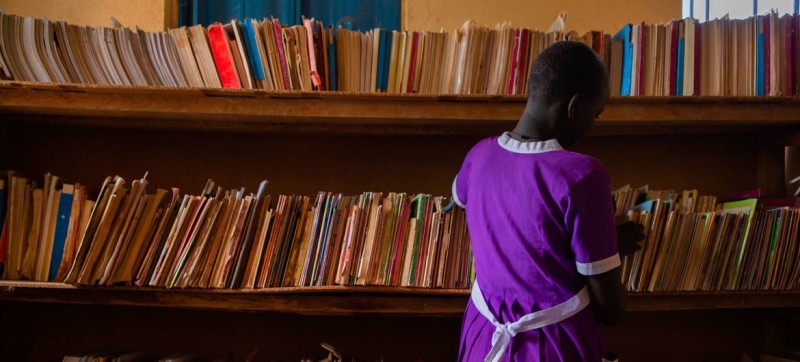© UNICEF/Stuart Tibaweswa This 14-year-old Ugandan girl was forced into marriage by her parents at 8 years old.
Currently, one in five young women aged 20 to 24, were married as children, versus nearly one in four a decade ago, according to the new analysis, entitled, Is an End to Child Marriage within Reach? Latest trends and future prospects.
Dreams crushed
“The world is engulfed by crises on top of crises that are crushing the hopes and dreams of vulnerable children, especially girls who should be students, not brides,” said UNICEF Executive Director Catherine Russell.
“Health and economic crises, escalating armed conflicts, and the ravaging effects of climate change are forcing families to seek a false sense of refuge in child marriage. We need to do everything in our power to ensure that their rights to an education and empowered lives are secured.”
Tweet URL
Immediate consequences
Girls who marry in childhood face immediate and lifelong consequences. They are less likely to remain in school, and face an increased risk of early pregnancy, in turn increasing the risk of child and maternal health complications and mortality, UNIFED notes.
The practice can also isolate girls from family and friends, and exclude them from participating in their communities, taking a heavy toll on their mental health and well-being.
The report cites global progress, driven predominantly by a decline in India, though this country is still home to the largest number of child brides worldwide.
Progress is also evident in other contexts, including in populous countries where the practice has historically been common, such as Bangladesh and Ethiopia, as well as in smaller countries with lower levels of child marriage that are moving closer to elimination, such as Maldives and Rwanda, the analysis says.
The experiences of these countries illustrate that progress is possible in a variety of settings, UNICEF said.
Still, they tend to share common threads, including improvements in economic development, poverty reduction, access to employment and educational attainment at the secondary school level.

© UNICEF/Bruno Pedro In Mozambique’s Nampula province, children paint a mural highlighting the negative impact of child marriage.
Threat multiplier
Worldwide, conflict, climate-related disasters, and the ongoing impacts of COVID-19 – especially rising poverty, income shocks, and school dropout – are helping to increase the drivers of child marriage while also making it difficult for girls to access health care, education, social services, and community support that protect them from child marriage.
As a result, girls living in fragile settings are twice as likely to become child brides as the average girl globally, the analysis notes.
For every ten-fold increase in conflict-related deaths, there is a seven per cent increase in the number of child marriages. At the same time, extreme weather events driven by climate change increase a girl’s risk, with every 10 per cent deviation in rainfall connected to around a 1 per cent increase in the prevalence of child marriage.
Precious gains to end child marriage in the past decade are also being threatened by the ongoing impacts of COVID-19, the analysis warns. It is estimated that the pandemic has already cut the number of child marriages that could have been averted since 2020, by one-quarter.
“We’ve proven that progress to end child marriage is possible. It requires unwavering support for vulnerable girls and families,” added Ms. Russell. “We must focus on keeping girls in school and making sure they have economic opportunities.”




Comments are closed, but trackbacks and pingbacks are open.